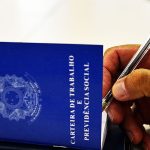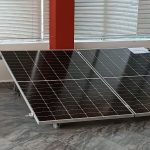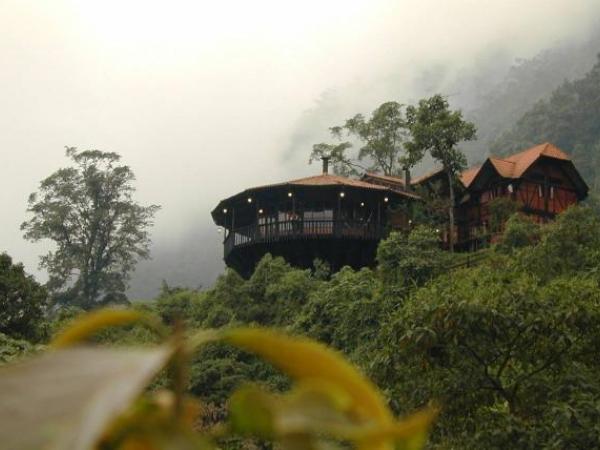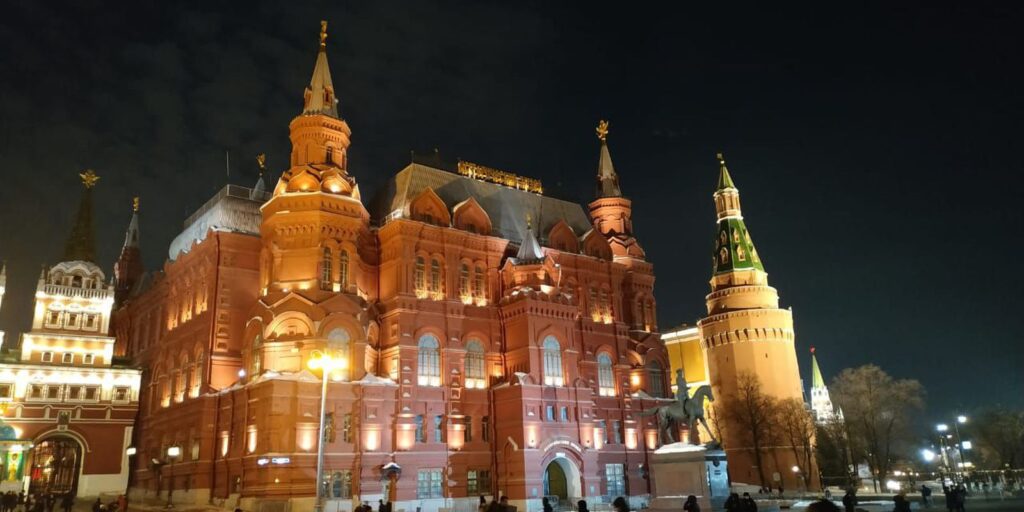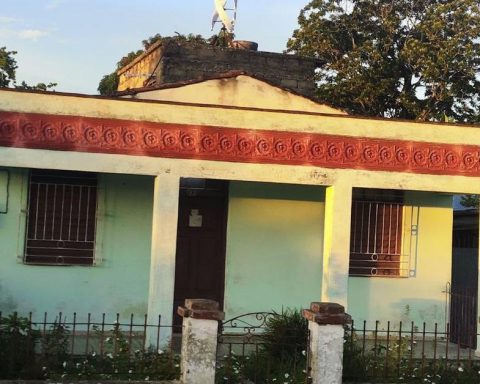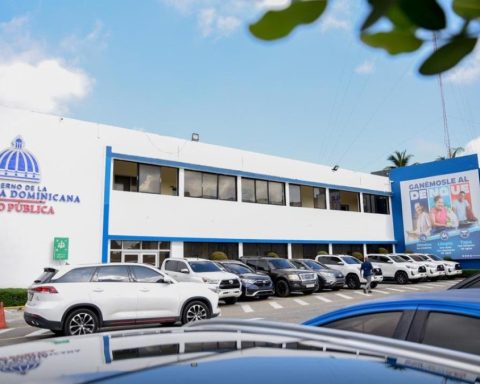
There were more than 100 articles, but finally the report of the Committee on the Environment includes 38 points and 2 temporary provisions, which will be voted on in general this Thursday in plenary and on Friday in particular. Although these are general principles, without delving into issues that could be controversial, given the environmental and economic interests at stake, the perception that exists within the Constitutional Convention (CC) is that it will also be a complex and tense debate, but much less than what could be the second report, where there will be initiatives related to the right and use of water, as well as articles related to mining, among others.
Although there are doubts in up to 10 articles, there are others that could have a faster process. Among the points where there is more confidence that progress can be made, is the State’s recognition of the climate and ecological crisis as a consequence of human activity and its responsibility to take measures to address it, in addition to generating more scientific evidence. about the processes.
On the other hand, one of the central doubts lies in article 10, which establishes that “the State will promote a historical review that seeks to identify the evolutionary processes of Nature and recognize human interventions on it, and establish the historical truth in the violation of their rights, in order to achieve justice processes and integral reparation of Nature”.
The greatest tension and debate could also occur in the subtitle of “Environment, biodiversity, principles of bioethics and natural commons”, especially in articles related to the principles of native peoples (PP.OO.) and the concept of plurinationality, which has transversally marked all the reports of commissions seen so far, generating both a debate and the discharges of some constituents of Vamos por Chile . For example, with respect to natural common goods, it specifies, in the second paragraph of article 12, that “For pre-existing peoples and nations, these assets have a spiritual dimension that transcends the visible, where protective forces of the components of Nature coexist, who contribute and ensure the harmony and balance of spaces. The State is the custodian of assets natural commons and must preserve them, ensure their participatory management, democratic governance and responsible access”.
Article 17 is the most specific regarding the rights of indigenous peoples and one that could seize the most intense debate. It establishes a special regime of collective ownership of natural common goods found in lands and territories of PP.OO. and that for this reason “they have the right to access, use and control said goods, which are part of their identity and allow their cultural, social and economic survival.” Likewise, it establishes that the State will recognize the ancestral uses of said goods, also recognizing as a limit the legal system of each people and the rights of nature. “The State may not constitute or assign authorizations for the use of common natural assets existing on indigenous lands and territories, in favor of non-indigenous or indigenous natural or legal persons belonging to another people,” he adds.
The constituent that integrates the Environment Commission, Glory Alvarado (MSC), an environmental defender and activist, acknowledged that there are more complex points, but said that he hoped that broad agreements would be reached on most of the articles. “I hope that everything agrees. We have been talking with some constituents, because from a report that had more than 100 articles, we reached 38. We did a super hard job to reduce it and we left the topics that are super necessary and that were topics of the block 1 commission, such as rights of nature, common goods, climate crisis, animals, environmental democracy,” he emphasized.
In his opinion, the greatest difficulty has been posed by the committee’s own conventioneers, “who vote against our proposals and which is the same one that voted Rejection,” since he stated that yesterday they voted for proposals in the committee – which are not included in the first report to be voted on tomorrow – on a general matter, which still has a long process to go through and the text can be modified. “They came out to say ‘hey, they’re going to take away their water,’ ‘the issue of the mining companies,’ and people get scared, especially in rural areas,” he claimed.
But also in general principles, such as establishing rights to nature and non-human animals, they generate noise in sectors of Vamos por Chile, as well as some principles of participation. In the case of recognition as subjects of the right to nature and non-human animals, the constituent Rodrigo Alvarez (UDI) stressed that “this profound change to the Chilean legal conceptual model, establishing nature as a subject of law and animals as subjects of law, generates concern. This is an absolutely unprecedented experience in our legal structure and, in the comparative experience , only countries like Bolivia, Colombia and Ecuador have it”. Specifically, what is established in the article on non-human animals – which was part of the Popular Norm Initiatives that the commission also reviewed – changes the status of non-human animals from furniture to sentient beings, and their right to live free from abuse.
Regarding “common natural assets,” he maintained that “it is quite imprecise, complex, that has strange rules, such as whether radiation from the sun or the air, the wind, is a common natural asset. We find it worrying.” Another point that they see with attention on the right is that of the transitory articles, which seek to create a Service for the Climate and Ecological Crisis, as well as a registry of landfills in the national territory and that, in the opinion of the constituents of the sector, should be the object of law and not of a Constitution.
In the document that the plenary will vote on, there is also the article on Waste management, which seeks to encourage and guarantee recycling and reuse through the State; in addition, Construction in Harmony with Life, where decent and ecological housing is among the points, in tune with the ecosystem and with low environmental impact.
Biodiversity is another point, which includes the protection and conservation of endemic species, native pollinators, plants, animals, among others. On Environmental Principles reference is made to environmental crimes and their imprescriptibility. The last articles are related to environmental responsibility, the pursuit of administrative, criminal and civil responsibility for acts or omissions that violate the rights of nature.
Water, the economic model and mining: the tension of the second report
Yesterday, the Environment Commission continued to advance in the general and particular voting –within the instance– of articles related to the right to water, the relationship with mining, among other points, which are the most controversial initiatives emanating from said commission . For Vamos por Chile, what is being debated on the economic model, special energy, water and sea regimes, among other points, is “highly worrying.” Within the CC they say they are aware that during the vote on this article – which will be part of a second report by the commission – the main pressures will be generated from the business world and the toughest debate within the Convention between the different groups .
What was voted yesterday corresponds to Block B, of “Common Natural Assets and their statute”, where the regulations on the “Human Right to water and sanitation” were approved in general, which includes article 2, paragraph 1, and which establishes that “by virtue of this right, the uses of water will be prioritized as follows: – Maintenance of natural cycles and preservation of ecosystems; – Human consumption and sanitation; – Ancestral and traditional uses; – Livestock and small-scale local agriculture “.
There were 7 articles that were approved and are related to: “Human right to water and its sanitation”; “The duties of the State in the provision of water and other sanitation services”; “Public domain of waters”; “Human right to water and participatory management in basins”; “Protection, governance and management of basins”; “For water, the rights of nature and glaciers”; and “For the restitution of water and territory as a common good for the Itrofilmonguen, all forms of life.”






